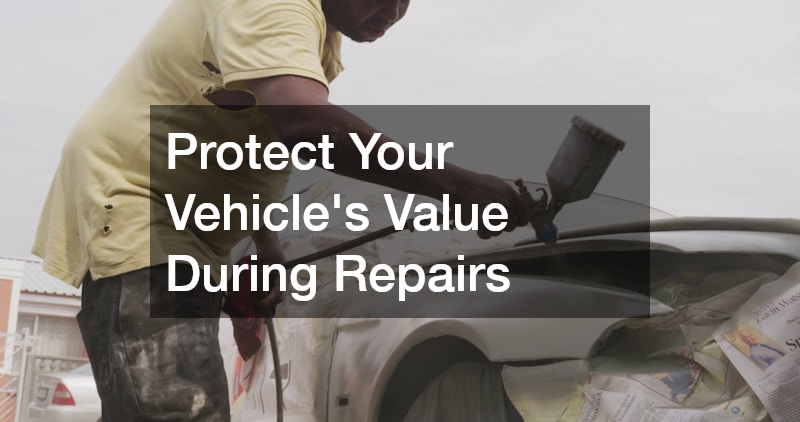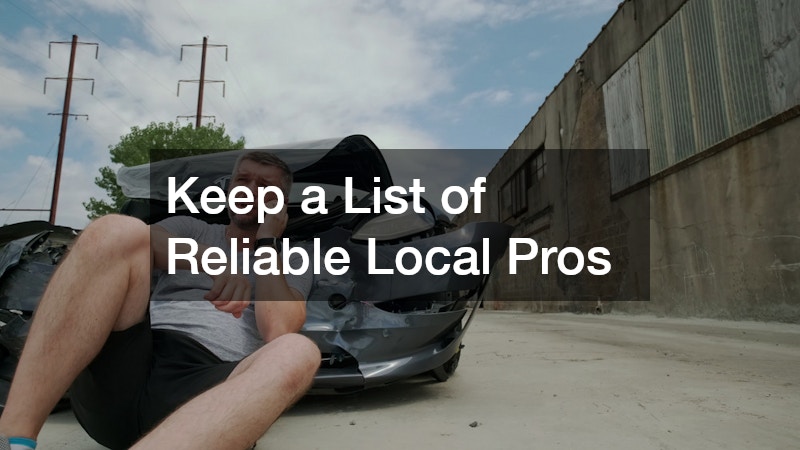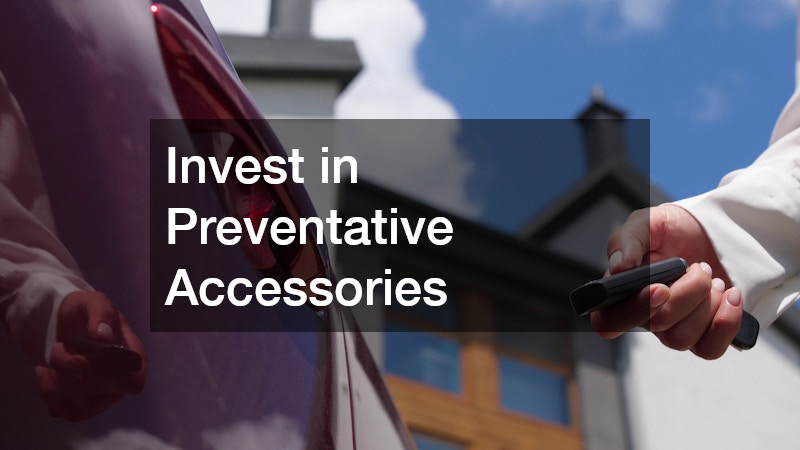Car trouble is one of those frustrating experiences that rarely comes with a warning. A flat tire on the highway, a dead battery in the grocery store parking lot, or an engine that just won’t start on a cold morning—all these situations can turn your day upside down. While some vehicle issues can wait for business hours, others demand immediate attention. That’s where having access to a 24 hours car repair service can make all the difference between being stuck for hours and getting back on the road quickly and safely.
Many drivers assume that having roadside assistance or a reliable vehicle is enough. But without a plan for emergency scenarios and a go-to contact for 24 hours car repair, even a small problem can escalate into a major inconvenience or safety hazard. Understanding how to prepare for these moments—before they happen—helps reduce stress, protect your vehicle, and safeguard your personal well-being. Preparation involves more than knowing who to call. It means assembling essential items, understanding your car’s condition, and keeping up with your insurance and repair resources.
In this blog, we’ll walk you through the crucial steps to take before and during an unexpected breakdown. From selecting the right car towing services to checking in with auto insurance agents and stocking up on local auto parts, we’ll show you how to protect your car, your wallet, and your peace of mind. Most importantly, you’ll learn why having a trusted 24 hours car repair contact should be a key part of every driver’s emergency preparedness plan. Let’s dive in and get your readiness level into high gear.
1. Know Who to Call Before You Need Them
The best time to find a reliable 24 hours car repair contact is before trouble strikes. Having someone ready to assist means you won’t waste time scrolling through reviews in a panic. Look for a full-service provider that offers roadside assistance and car towing in your area. Ask about their response time, coverage area, and technician qualifications. Ideally, they should be accessible by phone at any time, including weekends and holidays.
Establishing a relationship with a trusted repair contact also allows you to ask questions about your car’s needs in advance. This can help with preventative care and early issue detection. Plus, when you already have a trusted name stored in your contacts, you’re less likely to fall prey to opportunistic tow trucks or unqualified mechanics who may overcharge or provide poor service during an emergency.
When compiling your list of emergency numbers, be sure to include your repair contact alongside roadside assistance, your insurance provider, and a backup towing company. Getting stuck without cell service? Some companies provide embroidered key fobs with emergency hotline numbers printed on them—compact, practical, and easily accessible in a pinch. Keep your resources organized, accessible, and always up to date, because when car trouble strikes, every minute counts.
2. Keep Basic Parts and Fluids in Reach

Even with the best 24 hours car repair contact, some issues are faster to fix yourself—if you have the right tools and supplies. Keeping a well-stocked emergency kit in your trunk can save the day in many cases. This should include jumper cables, a tire inflator, a flashlight, extra fuses, and fluids like oil, coolant, and windshield washer fluid. Many of these supplies can be found at your nearest local auto parts store.
When stocking up, be sure your supplies match your car’s specifications. Carry extra belts, spark plugs, or wiper blades if your vehicle has a history of wear issues. Also, check expiration dates on chemical products like coolant and sealants. Restock anything that’s been used or is approaching the end of its shelf life.
Most importantly, learn how to use everything in your emergency kit. There’s no use in having tools if you don’t know how to apply them. Many local stores and community centers offer workshops on basic car maintenance—attend one and bring a friend. Remember, while some problems are too complex to handle on the road, being prepared for the small stuff reduces your dependence on immediate help and complements the reliability of your 24 hours car repair contact.
3. Schedule Regular Maintenance to Avoid Surprise Breakdowns
One of the best ways to reduce the chances of an emergency is to prevent issues before they arise. Consistent maintenance from trusted professionals goes a long way in preserving your vehicle’s reliability. Your schedule should include oil changes, tire rotations, brake inspections, and transmission checks. Partnering with a shop that offers car repairs and emergency service ensures seamless support when needed.
Make sure to ask if your repair shop offers 24/7 availability. Establishing routine care at a 24 hours car repair location helps you build a relationship with technicians who already understand your car’s service history. This familiarity can lead to faster diagnostics and smarter solutions during emergencies.
Drivers often underestimate small issues—like squeaky brakes or a dashboard warning light—until they become major concerns. Ignoring these signs could leave you stranded when you least expect it. Proactive maintenance keeps your vehicle safer, more efficient, and less likely to surprise you at the worst time. So don’t just wait for something to go wrong. Prevention is the first step in any solid emergency preparedness plan.
4. Protect Your Vehicle’s Value During Repairs

Unexpected damage can hit more than your engine. A fender bender or roadside accident may also compromise your car’s appearance. Having access to local auto body repairs ensures cosmetic and structural issues get addressed quickly and professionally—especially after hours. Seek shops that work in tandem with a 24 hours car repair provider so you can streamline your service, even in the middle of the night.
Whether it’s dent repair, glass replacement, or bumper alignment, having a trustworthy body shop on call minimizes downtime and protects the value of your vehicle. Ask in advance if the repair center can match paint colors and complete claims with your insurance. Documenting damage and initiating repairs quickly helps avoid issues with rust, corrosion, and further wear.
If the shop offers auto paint protections, consider applying these after a major repair. This can guard against sun damage, road debris, and weathering—especially if your car spends a lot of time outdoors. A protective coating is not only a cosmetic bonus but also a long-term investment in your car’s resale value. A dependable body shop is another essential piece of the preparedness puzzle.
5. Get Insurance and Emergency Resources in Order
No matter how reliable your car is, you need to ensure you’re financially covered in case of emergency. Review your coverage regularly with a car insurance agency that understands your driving habits and vehicle condition. Some policies offer built-in roadside assistance or may reimburse expenses incurred during 24 hours car repair visits. Knowing what’s included (and what’s not) keeps you from overpaying or missing out on helpful resources.
In addition, have a chat with your auto insurance agents about add-on protections for things like towing, rental vehicles, and labor. These often cost just a few dollars more each month but can make a massive difference when you’re stuck on the side of the road. Print out policy details and store them in your glove box along with emergency contact numbers, receipts, and insurance cards.
Some insurance companies also provide mobile apps that connect you to 24/7 support and locate nearby repair shops. Familiarize yourself with these features so you can navigate them quickly under stress. Good insurance coverage doesn’t just reimburse—it offers a direct line to immediate help when you need it most.
6. Understand What 24/7 Service Really Means
Not all shops that advertise 24 hours car repair truly deliver on that promise. Some offer only limited after-hours services or work on call with long response times. Before you rely on any provider, make sure to ask detailed questions about their capabilities. Can they handle both mechanical and electrical issues? Do they offer roadside repairs or only towing? What’s their average wait time?
Reputation also matters. Read reviews specifically from people who used their after-hours services. Was the technician courteous? Were the repairs accurate and fairly priced? How long did the wait take? A reliable 24/7 provider will have transparent pricing, licensed staff, and a clear breakdown of services offered outside of regular hours.
Ultimately, the goal is peace of mind. You should be able to call your emergency contact at 2 AM with full confidence that someone will be there to help. Having clear expectations ahead of time can prevent disappointment when every second counts.
7. Keep a List of Reliable Local Pros

No one likes to break down far from home—but even locally, it helps to have trusted people nearby. Compile a list of local car mechanics and auto shops that operate in your immediate area and provide 24 hours car repair . Ask your neighbors, coworkers, and local social media groups for recommendations. Having a few backup options is always smart, especially if your go-to shop is unavailable.
Include their phone numbers, addresses, hours, and services in your emergency binder or digital note. Having a short list of local contacts also helps when you’re out of town and need to refer someone else—like a family member or teen driver—to nearby help. You don’t want to scramble for options when you’re under pressure.
Many of these professionals will also offer advice on regular maintenance, emergency tools, and what to do if you break down in specific areas. Keeping your list current and organized gives you faster access to the people who can help the most.
8. Don’t Wait to Get Rid of an Unreliable Car
If your car constantly breaks down, it might be time to consider alternatives. No amount of 24 hours car repair can make up for a vehicle that’s simply beyond its useful life. In these cases, exploring junk car sales may be the most responsible option. Many companies offer free towing and immediate cash offers for old, broken-down vehicles.
Selling a junk car frees up space, reduces your liability, and gives you the opportunity to invest in a more dependable ride. It also removes the risk of being stranded when you least expect it. If you’re frequently dealing with costly repairs, repeated breakdowns, or safety issues, talk to a trusted mechanic or sales specialist for advice on when to let go.
Some services even allow you to apply your payout toward a new or certified used vehicle—saving you the hassle of private sales and drawn-out negotiations. It’s a practical, often overlooked step in preparing for emergencies: getting rid of the car that’s most likely to leave you in one.
9. Invest in Preventative Accessories

In addition to mechanical readiness, consider gear and accessories that offer long-term protection and convenience. Investing in auto paint protections helps preserve your vehicle’s finish during bad weather or roadside repairs. These coatings can minimize cosmetic damage from salt, UV rays, and harsh cleaners—especially useful if you’re regularly exposed to tough driving conditions.
Accessories like embroidered key fobs not only look great but can hold emergency information, spare keys, or even QR codes with insurance and repair contacts. These are especially helpful in high-stress situations when searching through your phone or paperwork might be difficult. Little things make a big difference when time and clarity are in short supply.
Pairing these tools with a reliable 24 hours car repair contact gives you full-spectrum preparation—from aesthetics to action. Preparedness isn’t just about avoiding breakdowns—it’s about bouncing back from them faster and smarter. Accessories that boost convenience, security, and functionality are a worthwhile investment in your peace of mind.
10. Practice Your Emergency Routine
Preparation means more than owning tools and saving contacts—it means knowing exactly what to do when the moment strikes. Practicing your emergency steps in a calm environment helps you act faster and think clearly when real trouble hits. Review the 24 hours car repair contact info, confirm where your tools are stored, and rehearse using your emergency kit.
Run mock scenarios with family members or new drivers in your household. For example, simulate a flat tire, dead battery, or stalled engine. Walk through steps like pulling over safely, turning on hazard lights, and contacting assistance. The more familiar everyone is with the protocol, the less likely panic will take over.
Being mentally prepared ensures you use your resources effectively. Even the best plan won’t help if you forget what to do or where your essentials are. Rehearsals turn preparation into instinct—which, in emergencies, makes all the difference between stress and swift recovery.
Car trouble doesn’t have to mean disaster—not if you’re prepared. Having a plan, a stocked emergency kit, and a trusted 24 hours car repair contact gives you control even in chaotic situations. From organizing support services like car towing and car repairs to protecting your investment with auto paint protections and knowing when to explore junk car sales, your preparation directly influences the outcome of any roadside issue.
Start by building a relationship with reliable local car mechanics who can respond quickly when the unexpected occurs. Back that up with a proactive approach to maintenance, a full understanding of your policy from your car insurance agency, and go-to help from knowledgeable auto insurance agents. Equip your vehicle with smart accessories like embroidered key fobs, and source quality tools and parts from local auto parts providers.
Every step you take toward readiness is a step away from panic and confusion. Emergencies may not be preventable, but your response can always be strong, swift, and informed. Keep this guide close, update your resources regularly, and trust your preparation to carry you through whatever the road throws your way.